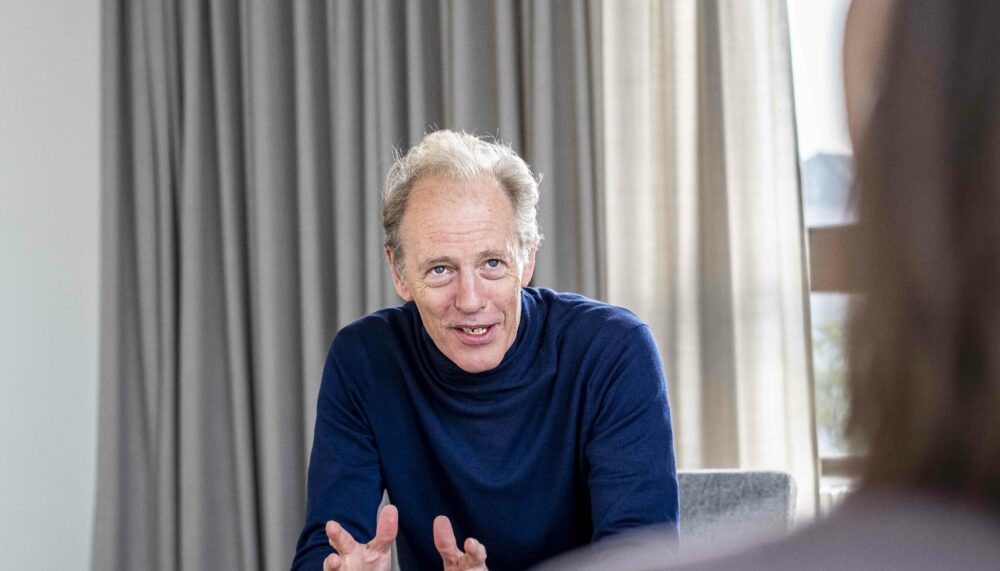A word from our Executive Director
Berghof Foundation Annual Report 2021
Andrew Gilmour reflects on our anniversary, and the work we carried out while adapting to manifold challenges throughout 2021.

2021 saw the 50th anniversary of Berghof’s founding. While we did not mark this with one particular celebratory event, we decided to organise a whole series of virtual events to discuss a variety of issues that Berghof is currently working on. The anniversary also gave us the chance to review our work over the past half-century, always with a view to seeing how we could build still further on the successes and lessons we had experienced.
We would have made more of this anniversary had the COVID-19 pandemic not continued throughout the year. Due to global travel and contact restrictions, the implementation of many of our planned activities had to be limited or postponed. But our resourceful teams developed alternatives wherever possible, thereby reducing the pandemic’s harmful impact.
Many of our key activities take place in areas where in 2021 there was a notable deterioration of the situation in terms of political instability, military confrontation, economic dislocation and human suffering. In Ethiopia, hundreds of thousands of people are estimated to have been killed during 2021 in the conflict that began at the end of the previous year. In Lebanon, the economy went into a spiral of decline that many in Lebanon felt had never been encountered before in their history. And in Afghanistan, chaos ensued when Western forces withdrew and the government collapsed. Meanwhile, Yemen and Syria continued to see few developments that could be regarded as positive.
Berghof is able to adapt its approaches to increase our work’s impact and effectiveness, even in the face of major crisis.
But in all those places, Berghof’s teams and their local partners continued their efforts, adapting to changing circumstances – especially in Afghanistan where our support to both negotiating partners in Doha came to an end with the collapse of the talks while our support for dialogue continues. In Ethiopia, we continued to build the foundations for a national dialogue that will be required in the near future.
In addition to all the work in crisis regions in different parts of the world, Berghof worked to develop the six emerging focal areas that had been identified at the end of 2020. Integrating our work on climate transformation with the challenges posed by climate change was a particular priority, and important progress was made.
Our emerging focal areas:
- Climate change and conflict transformation
- Engaging with protest movements to strengthen nonviolent strategies
- Inclusive governance and accountability to mitigate corruption and other economic drivers of conflict
- Digital revolution and its impact on our work
- Dealing with the past in conflict transformation
- The role of women and gender in conflict transformation and mediation
Read more about our strategic priorities here.
Berghof’s management is deeply grateful to its capable and committed staff and associates, as well as to our international donors and partners – the number of which significantly increased during the year – for all that we accomplished together during 2021. Despite an improved situation in many parts of the world in terms of the pandemic, there is little else that suggests the challenges of 2022 will be less than those of 2021. But, as ever, Berghof is showing its ability to build on past achievements and to adapt its approaches in many areas of conflict transformation so we are able to increase our organisation’s impact and effectiveness even in the face of major obstacles.
On behalf of all my colleagues in the extended Berghof team, I welcome your interest and appreciate your support.
Andrew Gilmour, Executive Director